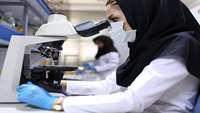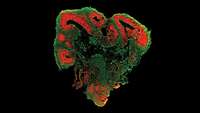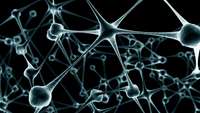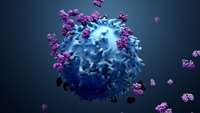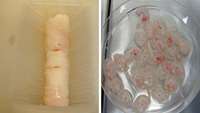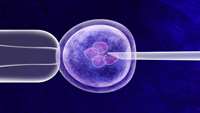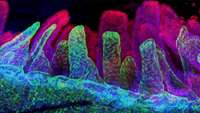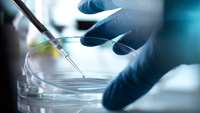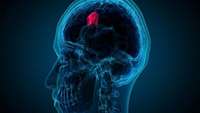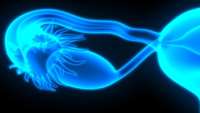Along With Economic and Humanitarian Wars, the US Wages a Scientific War Against Iran
Science diplomacy has long been recognized as one of the most powerful reconciliation tools and has a proven track record in building bridges and helping pave the way for cooperation on broader issues, especially between politically opposed countries.
Researchers create organoid of a brain region to study cognitive disorders
In a lab dish, Yale researchers modeled two brain structures and their interactions to shed light on the origins of neuropsychiatric diseases.
New mechanisms regulating neural stem cells
The research team led by Prof. Dr. Magdalena Götz, director of the Institute for Stem Cell Research (ISF) at Helmholtz Zentrum München and Chair of Physiological Genomics of the LMU Biomedical Center, wanted to identify the factors that regulate the maintenance or differentiation of neural stem cells.
Reprograming T cells to attack solid tumors
An attractive approach to liver cancer treatment is to bolster the bodys own immune defenses. Now an international team involving A*STAR researchers has genetically engineered human T cells to endow them with both specificity against liver cancer cells in patients with Hepatitis B, and the potential for long-term antitumor efficacy.
Researchers demonstrate the efficiency of producing stem cells from the tissues of the umbilical cord
RUDN researchers have proposed freezing parts of human umbilical cord, among other things, to obtain stem cells. Unlike conserved umbilical blood, the perivascular tissue of the umbilical cord (Whartons jelly) is an effective and safe source of mesenchymal stem cells
We as a species need to come to terms with CRISPR technology as China awaits birth of third genetically modified baby
After a Chinese scientist last year made history by using CRISPR technology to genetically modify two newborns, the scientific community is now struggling to grapple with the ethics of human germline editing as another woman pregnant with a gene-edited baby is soon due to give birth.
Tales from the crypt: new insights into intestinal stem cells
The intestinal epithelium withstands continuous mechanical, chemical and biological insults despite its single-layered, simple epithelial structure. The crypt–villus tissue architecture in combination with rapid cell turnover enables the intestine to act both as a barrier and as the primary site of nutrient uptake.
Trump administration halts fetal-tissue research by government scientists
US President Donald Trump’s administration is ending fetal-tissue research by government scientists and placing restrictions on academic researchers seeking grants from the National Institutes of Health (NIH) for studies involving fetal tissue.
Promising compound selectively kills brain cancer stem cells
Scripps Research scientists have discovered a compound that potently and selectively kills the stem-like cells that make glioblastoma brain cancers so deadly.
Scientists are researching a new method for developing artificial ovaries
An interdisciplinary team of researchers at Friedrich-Alexander-Universität Erlangen-Nürnberg (FAU) led by Prof. Aldo R. Boccaccini from the Chair of Materials Science (biomaterials) and Prof. Dr. Ralf Dittrich from the Department of Obstetrics and Gynaecology at Universitätsklinikum Erlangen have taken an important step towards developing artificial ovaries for patients suffering from cancer.


